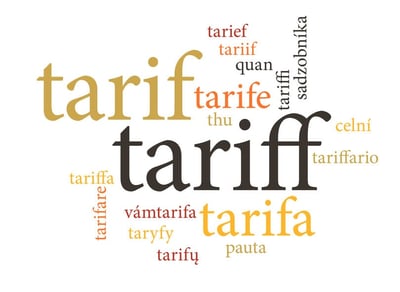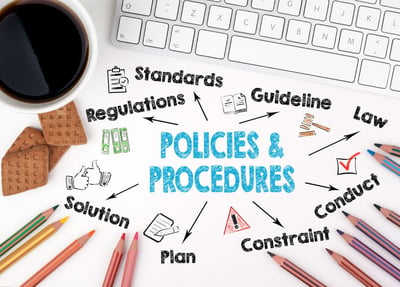10 Tips for Handling Canadian Customs as an Importer/Exporter
Dealing with Canadian customs as an importer/exporter isn't always easy. The process requires a business to have a deep understanding of several things, such as the duty rates, import fees, the import/export process, and so much more.
Since Canada is one of the leading economies in the world, importing goods into Canada or exporting out of Canada is often something businesses need to understand. The country is known for exporting wood, minerals, oil, gas, food, and other goods.
In order to create these goods, many importers must bring other goods into the country, such as electrical equipment, machinery, vehicles, chemicals, and other goods. In addition, many consumer goods, such as toys, electronics, furniture, clothing, and food, are imported into Canada every year.
To the untrained eye, it may seem like importing/exporting goods into Canada is a pretty seamless process. However, there are plenty of things going on behind the scenes. As a business, you must understand how Canadian customs work. Let's look at 10 tips to help you better understand the process and better handle importing goods into Canada.
1. Make Sure You Have a Business Number
Without a business number for your import/export account, dealing with Canadian customs will not be possible. This number is used by the Canada Border Service Agency (CBSA) to process all your customs documents.
Unless you like the idea of being delayed at customs, you'll want to open your import/export account with the Canada Revenue Agency before you start importing goods into Canada.
2. Understand the Canadian Customs Duty Rates
For most businesses, understanding the Canadian Customs Duty Rates will go a very long way ensuring your venture will be profitable. Whether you're importing goods to sell directly to the consumer or to help you create something to export, you need to know the duty rates in order to calculate your end profit.
The tariff classification will help to ensure you know how much duty you will need to pay when dealing with Canadian customs.
You'll be able to find the tariff classification, along with the rates of duty by consulting the Customs Tariff from the CBSA.
3. Get the Right Permits for Specialized Goods
While you don't need a license to import goods into Canada, in most cases, some goods will require a special license. You should always check to ensure the goods you want to import into Canada can legally be imported.
Some products will be labeled as "controlled products," which means you'll have to deal with a different restriction or quota from Canadian Customs. These products may include:
- Ammunition
- Agriculture Goods
- Some Metal Products
- Endangered Wildlife
- Cannabis
- And More!
For a complete list of items, you cannot import into Canada, refer to the Prohibited Importations page from the CBSA.
4. Hire a Customs Broker
One of the best and easiest ways to ensure your business has a smoother process dealing with Canadian customs is through the hiring of a customs broker. With the right customs broker in Canada on your side, you'll have an expert ready to ensure your goods get through customs without issue. Even if there is an issue, the right customs broker will have a team standing by ready to help handle any issues you may run into.
Hiring a Canadian customs broker to handle your good will provide you with many benefits, including:
- Proper calculation of all Canadian customs import fees
- Preparation of all necessary documents
- Assisting with transportation of goods
- Prepare the initial release package
- Arrange for preliminary clearance, pending full clearance of your goods
- Provide advice when making import/export decisions
- Understanding of Standard Trade Terms (INCOTERMS)
- Deep knowledge of the Drop Shipment Rules
- Ensure full compliance with all rules and laws
With a customs broker helping you handle Canadian customs, your goods will be in the hands of an expert.
5. Keep Up-To-Date with Import Bans
The import bans are always changing as the CBSA sees fit. So many new products hit the market every year, and the laws have to evolve when deciding what's safe for import into Canada and what's not.
As an importer of goods into Canada, you will need to stay up-to-date on the banned goods, at least in your industry. The last thing you need is for your shipment to arrive at the port of entry only to find out your goods are on the list of import bans.
With the help of a Canadian customs broker, you won't need to worry. At Cole International, we stay up-to-date on the import bans issued by the CBSA.
6. Make Sure You Know the Labeling Laws
Another tip to help you better deal with Canadian Customs, make sure you understand the labeling laws. These laws will vary a bit, depending on the product you're trying to import.
When it comes to consumer goods, such as cosmetics, the laws are rather strict. However, they may not be so strict with other products.
Often, consumer goods need to include information on the label in both the English and French language, according to the Consumer Packaging and Labeling Act. In addition, the labeling will need to remain legible throughout the life of the product, which may require research on your part.
Warning labels should also be understood as you will need to make sure you have the right warning labels for some products. Without the right warning labels on some goods imported into Canada, you may deal with harsh legal penalties.
Export.gov provides even more information on the labeling laws when it comes to importing goods to Canada on their page called Canada – Label/Marking Requirements.
7. Understand How Long the Process May Take
Not all goods imported into Canada will gain clearance quickly. In some cases, it may be necessary for an inspector to take samples of your products and have them sent for analysis. Depending on the situation, clearing customs may take anywhere from 20 minutes to several days.
The process of dealing with Canadian customs and getting your goods cleared may be a bit unpredictable. The right documentation on the product will help to speed up the process, however. You want to make sure you have all the necessary documents to help answer any questions if your goods go through an examination or analysis process.
8. Make Sure You Have the Necessary Documentation
Several documents are necessary when dealing with Canadian customs. Your shipment will require the following:
- Packing List
- Bill of Lading
- Commercial Invoice
- Canada Customs Invoice
- Certificate of Origin
Depending on the goods you plan to import into Canada, you may require other documentation, as well. In some cases, you may need to submit documentation to other government departments.
Without the property documents, your goods may be refused entry into Canada.
When you hire a Canadian customs broker, you won't have to worry about documentation. Your broker will ensure all the necessary documentation is present with each shipment making the process of dealing with Canadian customs much easier.
9. Have a Plan for Inspection
If you're goods are likely to be inspected, you will need a plan in place to deal with this process. A customs inspector may decide to request evidence of the safety of your products or the ingredients. Make sure you have the proper safety documentation on-hand for customs officials.
If you don't have a plan in place for the possibility of inspection, your goods may be delayed at the port of entry or refused entry into Canada. With the right plan in place, you'll be able to provide the necessary information to Canadian customs, making it easier to get your goods cleared faster.
It’s also a good idea to hire a Canadian customs broker with an audit response unit. This type of broker will be able to better serve you at the port of entry, if you do end up dealing with an audit.
10. Know How to Pay Your Duties
Typically, the final step in gaining clearance for your goods from Canadian customs is paying your duties. After you make the necessary payment, your goods will be removed from bond and released by customs. Now, you can pick up your goods as they have been given clearance into Canada.
Paying your duties is a vital step in the process, and you need to be prepared to pay correctly. Most customs officials will only accept cash or cheque for payment. Make sure you ask in advance, and you're prepared with the proper form of payment.
Hiring a customs broker will ensure you don't have anything to worry. Cole International works with Canadian customs at all major ports of entry daily. We know exactly how to pay your duties properly and make sure your goods are released without delay once the paperwork is approved.
These 10 tips for dealing with Canadian customs will certainly help to ensure your goods make it into the country safely and smoothly. Depending on what you plan to import, the process may be a bit more unique. Some goods require more documentation, and some may even require an inspection.
Make sure you understand what to expect before starting the process of importing goods into Canada. The last thing you want is to have a plan that seems perfect only to find out you were very wrong about how Canadian customs work.
When you choose to hire a customs broker in Canada, you'll eliminate the headaches often associated with Canadian customs. Cole International offers all the necessary services you need to ensure your goods arrive and gain clearance without delay. Find out how we can help you better handle the Canadian customs process.
Customs Brokerage. It's what we do.
Suggested Blogs on Canadian Customs Brokerage:

